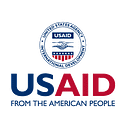Building Partnerships to Mobilize Financing in the Peruvian Amazonia
Small and medium-sized businesses drive job creation and economic growth. Over the past two years, COVID-19 disruptions in supply chains and workforces pushed many businesses to the brink of collapse, particularly those in the agriculture, tourism, education, and manufacturing sectors. In Peru, COVID-19 took a toll on the country’s coffee sector leading to a 11.9% drop in exports from 2019 to 2020. Although the economy began to recover and exports rose again in 2021, businesses face ongoing challenges as they try to recover and grow.
“In 2020, we didn’t have enough workers for the (coffee) harvest or logistical support. Unharvested coffee beans fell from the trees, and the little bit we did collect was left in warehouses, unable to be exported,” said Teodomiro Melendres, CEO of CENFROCAFE.
CENFROCAFE, a cooperative serving a network of 3,000 small coffee producers in four locations in the north of Peru, including the Amazonia, has been working for 20 years to increase the quality, production, and exports of coffee. One of Melendres greatest barriers to growing his business has been obtaining the financing required to invest in modern technologies, a problem further exacerbated by the COVID-19 pandemic. With adequate, timely, and competitive financing, Melendres’ CENFROCAFE could produce and export more high quality sustainably grown coffee.
The United States Agency for International Development (USAID) CATALYZE Peru Activity is helping businesses like CENFROCAFE and its suppliers access private capital to expand productivity and jobs across Peru’s Amazonia region. Implemented by Palladium, CATALYZE Peru (2020–2023) mobilizes private investment for entities of all types and sizes, from large-scale businesses and projects to small and medium-sized businesses operating in the supply chains that are the foundation of legitimate enterprises in the Amazonia. CATALYZE Peru identifies and facilitates commercially viable investment opportunities and business models that generate value, provide financial return, and produce economic impact while protecting the Amazonia.
While the Peruvian Amazonia accounts for 94% of the country’s forests and 65% of the country’s land mass, the productivity and economic growth of the region is lagging behind the rest of Peru. The region accounts for only 3.7% of all financial system lending and 1.9% of deposits; it also has lower rates of public expenditure and GDP per capita than the national average. Working with partners like CENFROCAFE, CATALYZE Peru has committed to mobilizing $106 million in private capital to strengthen the economy of the Peruvian Amazonia.
“I believe that the future of Peru is in the Amazonia because it is a region that has renewable natural resources to sustain a good quality of life for the people of the region. Food, water, and clean air are abundant resources, which by their natural cycles are constantly being renewed. Small and medium-sized enterprises invigorate the local economy and are major contributors to the growth of the local economy,” said Hugo Vilela, Business Advisory Service Provider in charge of resource mobilization for CENFROCAFE.
CATALYZE Peru’s advisory services team will support CENFROCAFE with an evaluation of their proposed investment and in determining appropriate financing structure. The $20 million investment will lead to expansion in processing and storage capacity of the cooperative and in the implementation of a traceability system. It will further impact 1,350 coffee producers and 2,000 hectares of coffee plantations.
“Focusing on local businesses, with sustainably-grown coffee that is certified Organic and Fair Trade and/or other, allows the development of economic activities that build more equitable power relations and open new opportunities for young people, women and men. There are many opportunities to be explored, such as adding value to the products coming out of the Amazonia to national and international markets. Environmental conservation and the development of a green and social justice economy must be synergistic. The Amazonia has the natural and cultural heritage to be able to move towards a high value-added economy,” said Vilela.
“I have been concerned about having the liquidity to pay members of the cooperative for their products. We really need technical assistance so we can reach investors that trust in us and will provide us with the capital we need,” said Melendres as he reflects on the pressures he has been facing.
Now, Melendres feels optimistic. “Working with CATALYZE Peru fills us with hope that we will reach our goal of obtaining $20 million in capital financing and continue to grow.”
